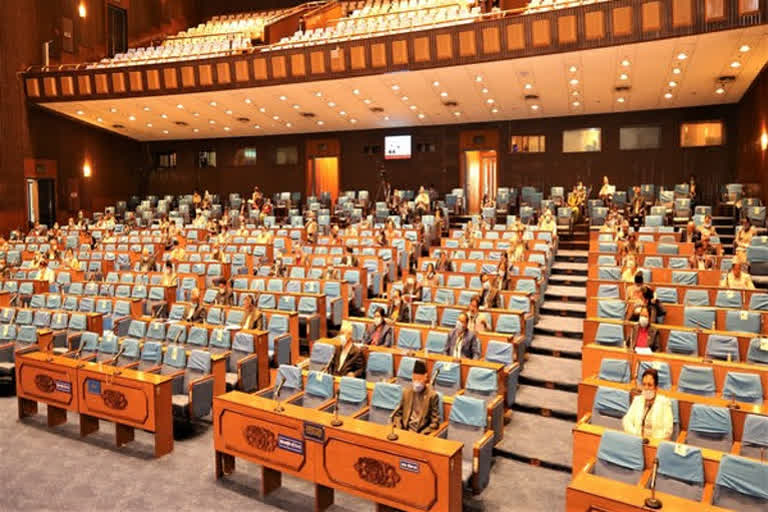Kathmandu: Nepal and India have no option other than holding talks to find a permanent solution to the border dispute amidst a rift in the country's leadership and its move to gain "cheap popularity" in the name of nationalism could backfire on the land-locked Himalayan nation, experts and senior journalists here said on Sunday.
Nepal's ruling and opposition political parties on Saturday voted in unison to amend the Constitution to update the national emblem by incorporating the controversial map incorporating Lipulekh, Kalapani and Limpiyadhura in India's Uttrakhand, a move described by New Delhi as "untenable."
Reacting to Kathmandu's move, Ministry of External Affairs Spokesperson Anurag Srivastava said on Saturday "this artificial enlargement of claims is not based on historical fact or evidence and is not tenable. It is also violative of our current understanding to hold talks on outstanding boundary issues."
"The redrawing of the map with the inclusion of Kalapani area by Nepal and endorsement from the House of Representatives shows the KP Oli government's move to gain cheap popularity in the name of nationalism, which could be counterproductive," said senior journalist and Aarthik daily editor Pralhad Rijal.
Rijal warned that the Oli government's move has created a dispute over the land between Nepal and India, and its repercussions could be costly.
"There are reports that the move was designed after receiving signals from Beijing. If so, it is unfortunate," he said, apparently referring to the growing involvement of cash-rich China in Nepal's political and economic spheres.
READ: Nepal Parliament's lower house passes bill to redraw political map
He said Prime Minister Oli's recent move can also be analysed in the wake of the growing power tussle between him and his rival within the ruling Nepal Communist Party, chairman Pushpa Kamal Dahal 'Prachanda'.
"The Prime Minister had to prove himself more nationalist to maintain his hegemony within the party," he said.
The Oli government is also facing criticism from various quarters over its response to curb the COVID-19 pandemic. Hundreds of people in different cities have been staging protests for the past few days after the government repeatedly overplayed its role in the fight against COVID-19 that has infected 5,760 people and killed 19 people. The majority of the COVID-19 fatalities in the country have been confirmed posthumously, The Kathmandu Post reported.
Noting that Nepal was dependent on India for 75 per cent of the imports to fulfill its daily necessities, Rijal said, "It seems that the government might not have thought about its long term implications."
"Therefore, the situation may turn adverse for our economic well being if the relations worsen. We can learn lessons from the blockade from the south half a decade back, when China could not be much helpful. China can do nothing other than speak some sweet words, as the Northern neighbour cannot be a substitute to India so far as our economy is concerned," he emphasised.
Political analyst and senior advocate Dinesh Tripathi said there was no option for both countries other than holding a dialogue and seeking political settlement of the problems.
"We need broad based and intense negotiations for resolving the issue and Nepal needs to show matured diplomacy, he said.
After the endorsement of the new map by the Parliament, a deficit of trust has occurred in the bilateral relations and track two diplomacy is required to adopt confidence building measures, Tripathi said.
Atul K Thakur, a political analyst, wrote in the Kathmandu Post that the failure of both sides to find common ground through diplomatic talks is worrisome.
"The immaturity the top leadership has shown by engaging in ruminations and exchanging distasteful is undesirable. Such immaturity doesn't help anyone one but those who feed on public resources and harm public interest knowingly or unknowingly," he wrote.
The India-Nepal bilateral ties came under strain after Defence Minister Rajnath Singh inaugurated a 80-km-long strategically crucial road connecting the Lipulekh pass with Dharchula in Uttarakhand on May 8.
Nepal reacted sharply to the inauguration of the road claiming that it passed through Nepalese territory. India rejected the claim asserting that the road lies completely within its territory.
(PTI report)



